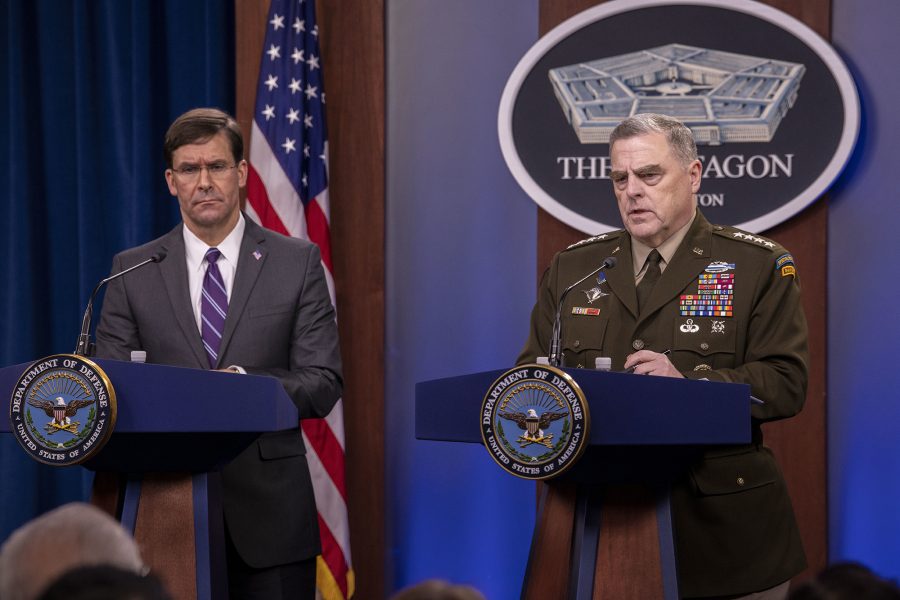The total number of U.S. forces suffering traumatic brain injuries following the Jan. 7 ballistic missile attack on al-Asad Air Base in Iraq continues to rise, with 64 troops now having been diagnosed with TBIs, the Pentagon announced Jan. 30.
Senior officials initially said no U.S. forces were injured when a volley of Iranian ballistic missiles impacted the air base. Chairman of the Joint Chiefs of Staff Gen. Mark Milley told reporters Jan. 30 that brain injuries are not “necessarily instantaneous, so [it’s] not a surprise, necessarily,” that the numbers continue to rise. The initial reports were accurate because the immediate focus was on deaths and obvious physical injuries, he noted.
“When we’re in contact with the enemy, we’re in a firefight, incoming mortars, rockets, ballistic missiles, or anything, the very first thing you’re focusing on is life and limb,” Milley said. “So when we say reported casualties, we’re really talking about killed in action and serious injuries, like loss of limbs.”
There were about a thousand people at the base, and many were within distance of the blast. “All of those people were screened, and we’ve got a certain number, and then the number’s growing,” Milley said.
The most recent number is up from the 50 that had been reported early this week, CNN reported. The bulk of those diagnosed with TBI remained in Iraq and have returned to service, while 18 were initially evacuated to Germany and one was taken to Kuwait. Half of those evacuated to Germany have since been taken back to the United States for further treatment.
“There’s a layered approach to this, so we’ll continue to do that with our medical professionals,” Milley said.
Several veteran organizations demanded an apology from President Donald Trump after he downplayed the injuries during a Jan. 22 press conference in Switzerland, saying they were just “headaches.” Esper said he has talked to Trump about the issue, and “he is very concerned about the health and welfare of all of our service members, particularly those who were involved in the operations in Iraq, and he understands the nature of these injuries.”
Milley said the military’s classification system for battlefield injuries currently places TBI below others. The three categories are “very serious injury,” “serious injury,” and “not serious injury.”
“And in this case, the reporting to date indicates mild TBI, which would be in the category of not serious injury,” Milley said. That doesn’t mean they’re not injured. … But in the categories that we categorize wounded in action, these individuals are in the NSI category at this time. That’s not to minimize or dismiss or anything, that’s just to say that that’s how we categorize casualties.”
In the aftermath of the attack, the U.S. is still working to deploy a Patriot missile defense battery to the Iraqi base, though it has been a slow process. U.S. Central Command has said the system is needed, and that request has been supported by the Pentagon, Esper said. However, the deployment needs to be approved by the Iraqi government.
“We need the permission of the Iraqis. That’s one issue,” Esper said about the slow process. “There may be others with regard to placement and things like that, more tactical, more operational. So it’s a combination of things.”
“A Patriot battalion is not a small organization,” Milley added. “It’s relatively large, so the mechanics of it all have to be worked out and that is, in fact, ongoing.”
